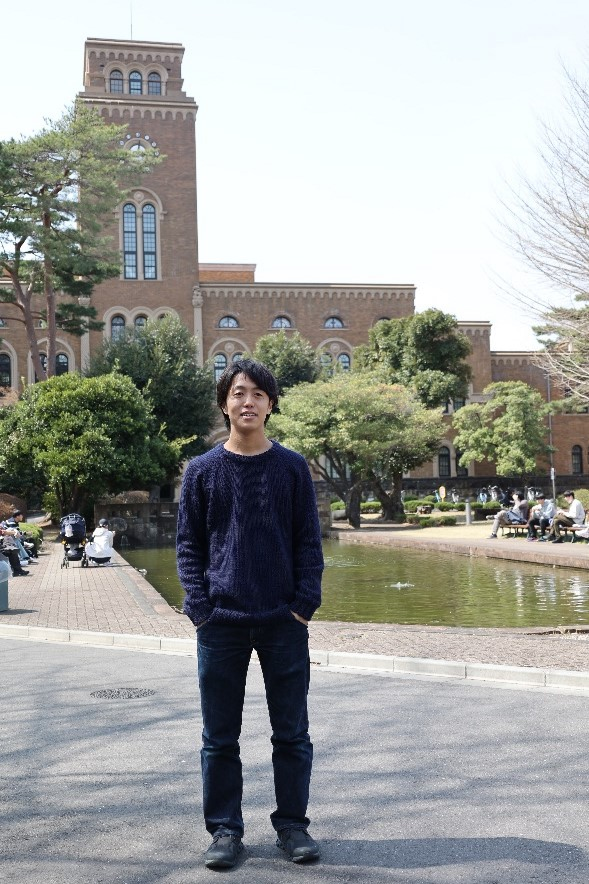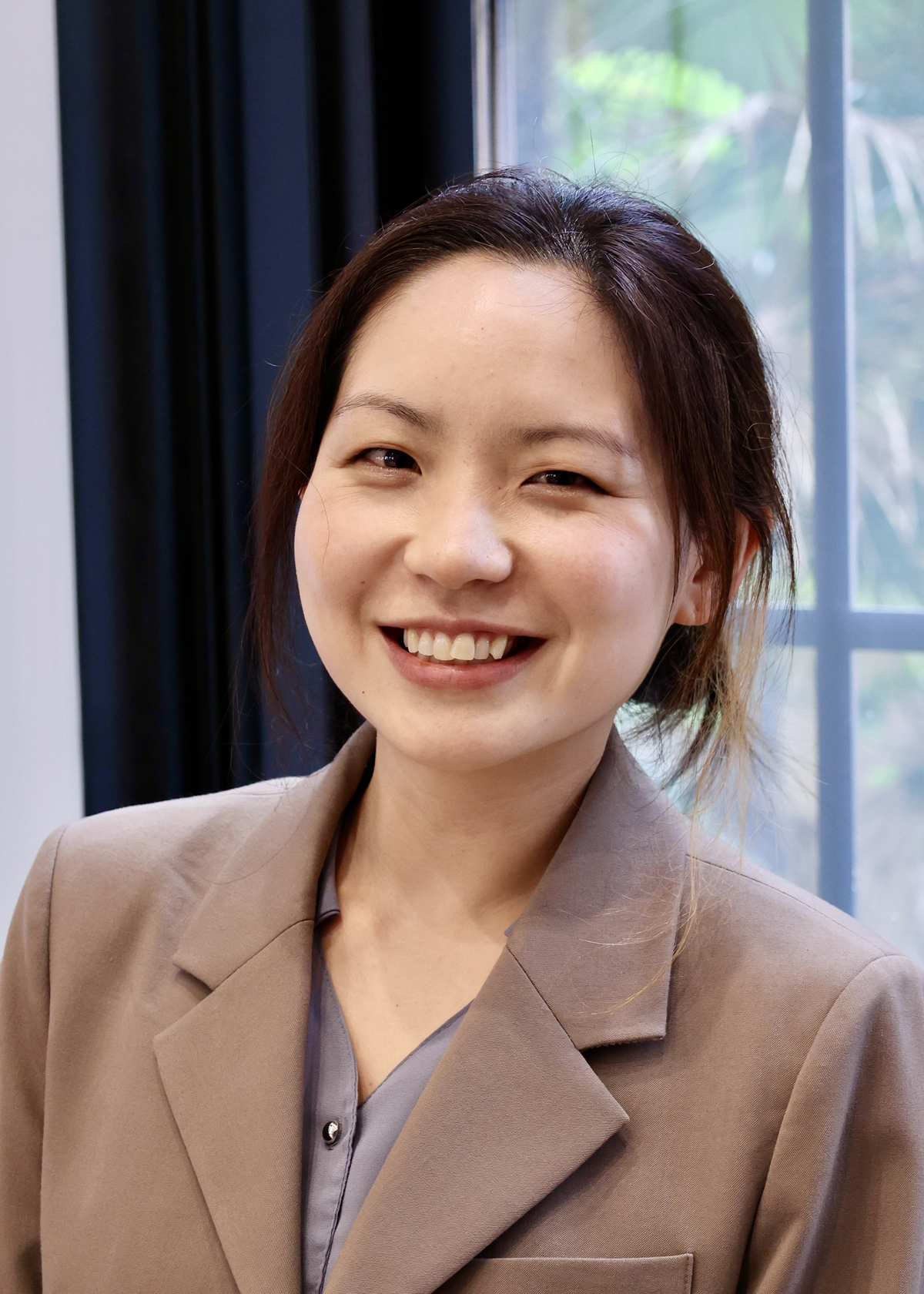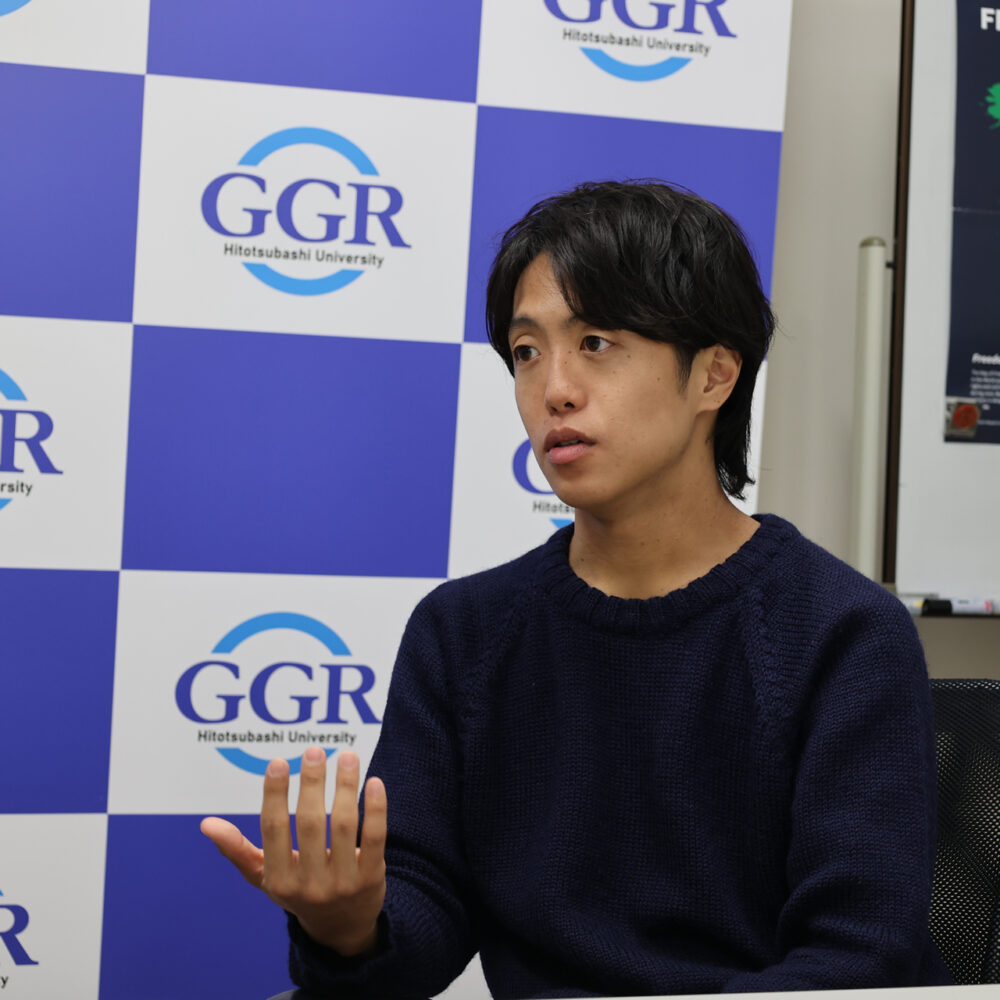Will You All Be Arrested with Me?
Interviewer and Author: JEONG Minhee
(Doctoral student, Graduate School of Law, Hitotsubashi University)
May 9, 2025
**This paper was written based on an interview conducted on April 2, 2024.
Will you all be arrested with me?
Yes, we will be arrested together
From “Filmmakers in Borderland” by Kubota Toru
― When you shot “Light Up Rohingya” in 2016, was it your first visit to Myanmar?
 “Indeed. My initial contacts were with members of the Rohingya community residing in Japan. Conversations with them led me to consider traveling to Myanmar. The prevailing narrative in news outlets at the time suggested a positive trajectory for the nation. Reports often emphasized economic growth, the influx of Japanese investment, advancements in democratization, and the expansion of civil liberties. The general election was in November 2015. While listening to the stories of Rohingya people, I learned that challenges and reports of persecution were still ongoing. Even hearing these stories in Japan, it was difficult to fully grasp the situation. The Rohingya community in Gunma Prefecture expressed support for Aung San Suu Kyi, citing improvements in Myanmar. However, I also learned about the dire circumstances faced by many in Rakhine State. It bears a resemblance to the Gaza Strip in the context of the Israeli Palestinian conflict – a place where people face immense hardship, including limited access to medical care and constant uncertainty. Recognizing the importance of raising awareness, I decided to travel there and document the situation through my film ‘Light Up Rohingya.’ My intention was to shed light on the hidden aspects of Myanmar, the parts that often go unnoticed, the gaps in the narrative even as the spotlight remains on the country.”
“Indeed. My initial contacts were with members of the Rohingya community residing in Japan. Conversations with them led me to consider traveling to Myanmar. The prevailing narrative in news outlets at the time suggested a positive trajectory for the nation. Reports often emphasized economic growth, the influx of Japanese investment, advancements in democratization, and the expansion of civil liberties. The general election was in November 2015. While listening to the stories of Rohingya people, I learned that challenges and reports of persecution were still ongoing. Even hearing these stories in Japan, it was difficult to fully grasp the situation. The Rohingya community in Gunma Prefecture expressed support for Aung San Suu Kyi, citing improvements in Myanmar. However, I also learned about the dire circumstances faced by many in Rakhine State. It bears a resemblance to the Gaza Strip in the context of the Israeli Palestinian conflict – a place where people face immense hardship, including limited access to medical care and constant uncertainty. Recognizing the importance of raising awareness, I decided to travel there and document the situation through my film ‘Light Up Rohingya.’ My intention was to shed light on the hidden aspects of Myanmar, the parts that often go unnoticed, the gaps in the narrative even as the spotlight remains on the country.”
― You were a law student at the time. What inspired you to start making films?
“The inspiration was ‘Light Up Rohingya.’ I made it when I was a sophomore and junior in college. I was in a club called S.A.L., where we interviewed Rohingya people living in Japan. Gradually, I became interested in visiting Myanmar.”
― So, you traveled to Rakhine State.
“I had the opportunity to visit Yangon initially, which I first experienced in August of 2015. Subsequently, I had the chance to visit Rakhine State in May of the following year, marking my second visit to the region.
“The most significant incident occurred in September 2017, and since then, the situation has become more challenging for the Rohingya community in Myanmar. During my visits, I had the opportunity to witness the challenges faced by the Rohingya community firsthand. However, it was also evident that the public in Myanmar was becoming increasingly hostile towards them. It is important to note that, despite the numerous massacres that have occurred, many in Myanmar believe that the Rohingya are the ones perpetrating the attacks. Considering this, it is heartening to see that there are individuals in Myanmar who are working to support the Rohingya, and we are honored to have had the opportunity to document their efforts.”
― It seems that you are referring to “Empathy Trip” (2019). The activist who appeared in the film, Tet, who is from Myanmar and a Buddhist, stated at one point, “No one is standing up for the Rohingya. So, I stand up.”
“At the time, I found myself increasingly drawn to documenting the efforts of Myanmar’s activists working in support of the Rohingya community. In the context of my work, I observed a certain level of hostility towards the Rohingya among Myanmar democracy activists. Even within the democracy activist community, there were sentiments expressed that I was leaning towards the Rohingya perspective. It was a time when those actively supporting the Rohingya were few. While I may have been inclined to appreciate the efforts of these individuals, my primary motivation was to capture the essence of what I believe human beings should be. I wanted to align my work with this vision, focusing my camera on those who are actively involved in such activities. I recognize, however, that there are those who, in the pursuit of their own interests, may choose to ignore the plight of others. However, I must admit that I faced challenges in delving deeper into this subject due to my own limitations in filming. On a different note, I would like to acknowledge Tet’s consistent dedication. He is currently based in Mae Sot, a border town in Thailand, where he continues to assist various individuals. I am grateful for the opportunity to collaborate with him, and he has been a great source of support and learning in my own journey.”
― What kind of person were you in college?
“I was just an ordinary college student, no different from anyone else, but I had the opportunity to join a club, experience various things, and start filming. Holding a camera and listening to other people’s stories changed me, making me humbler about things I didn’t know and more open to the world. I gradually came to realize that making images involves a lot of responsibility, and that my relationship with the world is born from the camera and images.
“While the world is often a place of shared concerns, when you receive someone’s voice through a camera, you have a responsibility to give shape to it in some way. This has led me to reflect more deeply on my own responsibility and the world around me. When I entered the school, I didn’t have such high aspirations, but I just wanted to work internationally.”
― That must have been a fresh experience to have a camera and feel like something has changed!
― One year after your release, you said, “This is the most powerful thing a citizen can do: to just keep saying what is wrong is wrong.”
“I mentioned something like that, but I wasn’t that political. When I make a film, I can’t really say whether I use it to convey a message or not. For me, making a documentary is a process of first trying to understand, and I want to convey to people as they are.
“But when there’s a process and a product, I want to stand on the side of each individual, no matter what I think about it. On the other hand, as an activist, it is important in general to continue to say what is wrong as a citizen. So, it’s probably a little different from what I’m talking about in doing a film.”
― Many of the films on Mr. Kubota’s YouTube channel were shot in Myanmar. However, “Just the Market?” was shot in London.
“London is where immigrants are everywhere. I happen to have a friend who has Peruvian roots, and he told me about the city. Peru and Colombia are very close, aren’t they? My friend told me that the Colombian market and the Colombian community were being taken away by redevelopment, and that I should help, so naturally I started going there and filming.”
― When did that happen?
“I was in the UK only for six months, starting from September 2019. When I first went, I thought I’d work there for about five years. Things changed after that, but I think it was quite natural. I wanted to learn about the immigrant’s perspective, and the differences from the communities in Japan. Also, the destruction of communities through redevelopment is happening all over the world. It’s accelerating in Japan after the Olympics, and I wanted to see the people fighting against that. Although the film project ended midway, I met Vicky, the protagonist, again after four years. In fact, their community won thanks to their efforts. The developers withdrew, and the market people were able to build a new building according to their plans, so the market survived, or rather wasn’t destroyed.”
― I’ve noticed that the Docu Athan films include both English and Japanese subtitles. I’m curious to know if these subtitles are created through the efforts of volunteers.
“First, we translate from the Myanmar language to English, and we ask a Myanmar person in Thailand to do that. It also becomes their job, so we send money to the people in Myanmar who have fled to Thailand. After receiving the data, we translate from English to Japanese. We also pay for the English to Japanese translation, but for people living in Japan, it’s only about the amount of volunteer work. We make sure that at least some money goes to them.”
― Are you going to continue with the system of allowing people to watch first and then be able to donate?
“We’re going to keep using that system. It lets people watch and donate directly. This system lets us make connections between Japanese people and people of Myanmar. But this system has its limits. We need to find a way for Docu Athan to keep making new products. We need to enable more people to continue their media work. We can do this by holding workshops on the ground in Thailand, creating new products there with production funds, and posting them on Docu Athan.”
― Are there any plans to upload products by journalists and filmmakers from Myanmar any time soon? Is there a possibility of uploading products from other countries?
“The word ‘Athan’ in Docu Athan is Myanmar’s word for ‘voice.’ It was created to share the voices of the people of Myanmar. For now, we plan to focus on themes related to Myanmar. But we want to work with other groups like the Milk Tea Alliance Japan to reach more people. For example, we could hold joint screenings, or screenings with people like Patrick Poon, where we could watch stories from Hong Kong and Myanmar and have discussions. We could even serve milk tea. We want to do activities like that.”
― The director, “H,” of “Filmmakers on the Border” says, “When I turn people’s stories into animations, I try to see things from their perspective and become their atmosphere and personality. I feel like it really happened to me.” What do you feel when you make documentaries?
“You have to do that to make a documentary, but that doesn’t mean you can actually become that person. You make them within that boundary. The situation of the people of Myanmar and my situation are completely different. I think that’s how documentaries are basically made. Instead of clearly showing a different perspective, a problem, or a message, it’s about seeing the world from someone else’s point of view. That’s what I’m trying to do.”
― When you said, “All responsibility lies with me. That’s a given. How do I take responsibility? There’s only one answer. Keep creating with my skills,” it made me feel that you were really taking responsibility. But in the film from one year after the release, you said, “No story is better than another. Myanmar is just a part, starting from connections with people, in a sense.” Were you having any trouble or conflicts during this time?”
“I really want to make films, especially about things that are important to me. I’ve forgotten what the story was, but I’ve also filmed videos about traditional crafts, and that’s important work. However, I want to focus on the Myanmar project in the future, so I think there are conflicts. After being detained and released in Myanmar, I understand that I can’t do it alone, but there are things I need to do, and there are more such things, and I should devote more time and effort to them. So, I don’t have much conflict about that. In the past, I wanted to take on and film any theme I was asked to do, but there’s a limit to what I can do.”
― So, it’s about deciding what’s most important?
“It’s hard to decide the priority. It’s very helpful to see things from other people’s points of view and learn about the world. This is true for the people of Myanmar and other people. Maybe the main character isn’t a person, maybe it’s something universal. Soy sauce, for example, is also affected by bacteria in traditional crafts. It’s influenced by the history, climate, and microorganisms of the land. Experiencing this through films is powerful because it allows us to understand these connections on a bodily level. It’s difficult to say which has more value. But the lives of the people of Myanmar are at stake, and it’s happening now, so I think it’s more urgent. That’s why we need to focus on what we can do now, what we must stop, and what we have to do. I have a feeling that we must take action now.”
― Last April, you went to Kyiv, Ukraine. What did you think as you worked to rebuild schools there?
“I was shocked by the fact that the people of Ukraine were living normally in a situation where missiles were flying. Missiles were flying, but a system to shoot them down was in operation, and when there was an air raid alert, they hid deep inside buildings and spent the night. In Yangon, Myanmar, bombs don’t fall from the sky. It’s not happening now, but in rural areas of Myanmar, they hit directly, and hundreds of people die. I understood well how much the people of Myanmar want a missile interception system like the one Ukraine has. Even in the war in Ukraine, at least in Kyiv, I felt that it was being protected to some extent. Without the interception system, it would have been a sea of fire. Officials of the National Unity Government (NUG) have made estimates that if they could get even one-tenth of the aid going to Ukraine, they could win in six months, and I was able to feel that a little bit.”
― Do you do anything regularly to understand other people’s perspectives?
“It’s difficult to live in this mode on a regular basis. I get tired. Before shooting, I try to be as unprepared as possible. I am always interpreting and receiving people’s words in my mind, but when I interpret, I often cannot accept the words as they are because of various prejudices and assumptions. I try to prepare my mind to be as sensitive as possible. I also meditate.
“I’ve always been thinking about how to connect documentaries to social change, or how to engage with it. I think Docu Athan is positioned as one such project. Communication on TV, for example, is very one-sided, isn’t it? I believe that films need to be a medium that gathers support, or that helps people form communities. Before starting Docu Athan, I was working on a project called Docu Meme, which started during the COVID-19 pandemic. Through that, we gathered donations by broadcasting the voices of protest from people living in Tokyo and the situations of places in need of support. So, in that sense, I’ve consistently been thinking about how to make films take root in the world. Although I started with Myanmar and am still working on Myanmar, at the root of it all is that kind of philosophy.”
【Translated by】
Akihito Kishi (Undergraduate student, Faculty of Law, Hitotsubashi University)
Toru Kubota is a documentary filmmaker based in Tokyo, Japan, who started making documentaries in 2014 when he began filming Rohingya refugees. In July 2022, he was detained by the Myanmar military while filming and returned to Japan after 111 days of detention. He is also the co-chair of “Docu Athan,” a project to support journalists and filmmakers of Myanmar.


